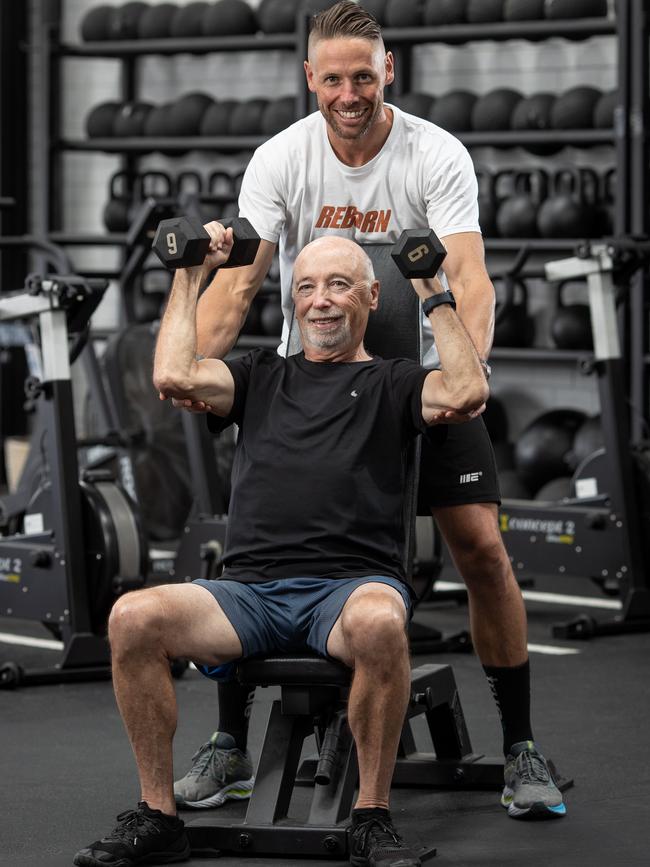Exercise is a better way to lose calories as experts reveal why weight loss drugs don’t always work
Experts reveal why weight loss drugs may not be the answer for Aussies trying to lose kilos, and how they can kick-start their metabolism without them.
Weight Loss
Don't miss out on the headlines from Weight Loss. Followed categories will be added to My News.
Increasingly sedentary lives and ballooning waistlines are motivating one in 10 Australians to ask their GP about weight loss drugs.
And for those who are currently dieting, the number is one in five, according to Body+Soul’s health of the nation survey.
Of the one in 10 who have tried or asked their GP about weight loss drugs, these are most likely to be Gen X, born 1965 to 1979, with Millennials, born 1980 to 1994, most likely to consider it.
The study also revealed more than half of Australians consider themselves overweight and that the amount of exercise we are doing has dropped by an hour a week since 2024.
Another factor for carrying extra kilos could be our sedentary lifestyles, with one in four Australians sitting for more than eight hours a day, putting them in the high risk bracket.

Gen Z, those born between 1995 and 2009, spend the most time sitting, with three in 10 not moving for more than eight hours a day.
Dr Terri-Lynne South, Chair of Obesity Management at the Royal Australian College of GPs, said weight loss drugs can work for people with a “very strong genetic predisposition for obesity, who are doing a lot of those lifestyle interventions, but still not getting the clinical benefits”.
But she said they should not be seen as an easy fix, as they carry risks, and for most people they’re unaffordable, costing anything between $250 to $700 a month.
She also warned people who are buying the drug online or from overseas without a doctor’s involvement, and who are not obese but are doing it for cosmetic reasons, that they might find themselves in a worse place with regards to weight gain and potential worsening consequences metabolically, down the track.
Dr South said people should not feel ashamed of being overweight or obese because in most cases it’s not their fault; their genes are to blame.
“People are not overeating carrots, it’s usually energy dense foods and this is all being biologically driven,” Dr South said.
She said there’s still so much more to learn about how genetics influence what we eat and our weight.
Other changes in the weight loss sphere included moving away from using Body Mass Index (BMI) as a measure and instead looking to improve a person’s physical activity and diet independent of whether it impacts their weight.
She said it can be frustrating for “people who have the genetics that makes it very easy to gain weight and live in a larger body” to be told to move more and eat better, but not see any change in the scales.

“And what we’re trying to do is to say you can actually improve your health independent of any weight loss,” Dr South said.
“Sometimes weight loss might be a side effect of intervention.”
Trainer Pat Carr from Reborn Athletic, said people who want to lose a bit of weight should get into weight training, which is no longer the domain of men, but is becoming more popular with women and older people.
He said not only does it increase your metabolism, which means you burn more calories, it helps manage blood sugar levels, prevent injury, strengthen bone mineral density and improve heart health.
He said he was inspired to set up a weights program for people over 60 after seeing how it had benefited his 73-year-old dad, Maurice, who only started lifting weights in November and has already gained 1.5 kilos of muscle.
“He’s going well and enjoying the results,” Mr Carr said.
“You gradually lose muscle mass over the age of 30 years old, but if you do strength training you will see these benefits from even as little as two to three sessions of 30 to 45 minutes a week. It’s never too late to start, if you want to live well as you age.”





